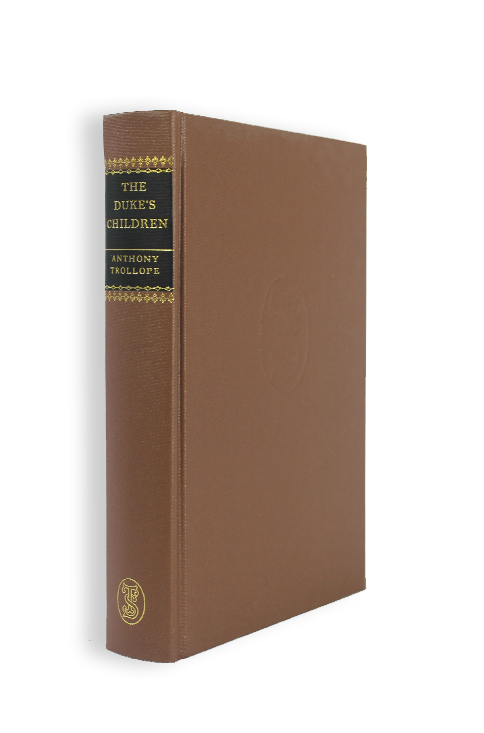Duke’s Children, The
Original price was: £35.00.£17.50Current price is: £17.50.
Available to members only
Introduction by Roy Jenkins
565 pages
London, Chapman and Hall, 1880. 3 vols.
Originally published in All The Year Round, October 4, 1879 – July 24, 1880
Out of stock
The BIG READ 2024 includes Lady Anna, Is He Popenjoy? The Duke’s Children and An Autobiography, which are available in the Trollope Society Edition.
50% Off – BIG READ 2024 Special Offer
Alternatively you can purchase any of the four titles individually for the same 50% reduction.
This, the last of the Palliser novels, makes a graceful close to one of the most vivid sagas in English Literature. As so often, Anthony Trollope sets himself a Herculaean task, by disposing of the reader’s favourite character, Lady Glencora, by the third page. Her death overwhelms the Duke, though it need not do the same for the reader. For some months she had been with her family in Italy; there she had begun to connive at the mutual passion of her daughter – a strapping and potentially troublesome girl of nineteen – for a handsome twenty-two year old from Cornwall, who is a close friend of her brother, Lord Silverbridge. Her interference in this, without the Duke’s knowledge, was the worst of her legacies, and it leads, as her actions before had so often led, into a sea of troubles.
Now, however, there is no exuberant Glencora to turn to: the Duke, grievously stricken, has to turn elsewhere, first to Mrs Phineas Finn. We are shown a strong character, who had never realised quite how important his wife had been – not only in the family, but in his own private life.
It was as though a man should be suddenly called to live without arms or legs. Though he had loved her dearly, he had sometimes been inclined to think, in the exuberance of her spirits, she had been a trouble rather than a support to him…
Despite Mrs Finn’s best efforts, the Duke can at first adopt no role except that of the heavy father. Frank Tregear is forbidden to see Lady Mary. Mrs Finn is caught between the two, and has to take all the Duke’s anger. This, as the plot develops, leaves him peculiarly vulnerable: cut off from the advice he desperately needs – on how to handle human beings, in this case his own children – and increasingly isolated in a world he has been accustomed to rule.
Meanwhile his son, not only compromised by introducing Lady Mary’s unwelcome suitor into the family circle, gets himself into an unholy mess with a shifty racing crook, called Major Tifto. All is happily resolved by the end of the book. It is a measure of Trollope’s sympathy that he makes the Duke so endearing when at bay: and also totally realistic.
